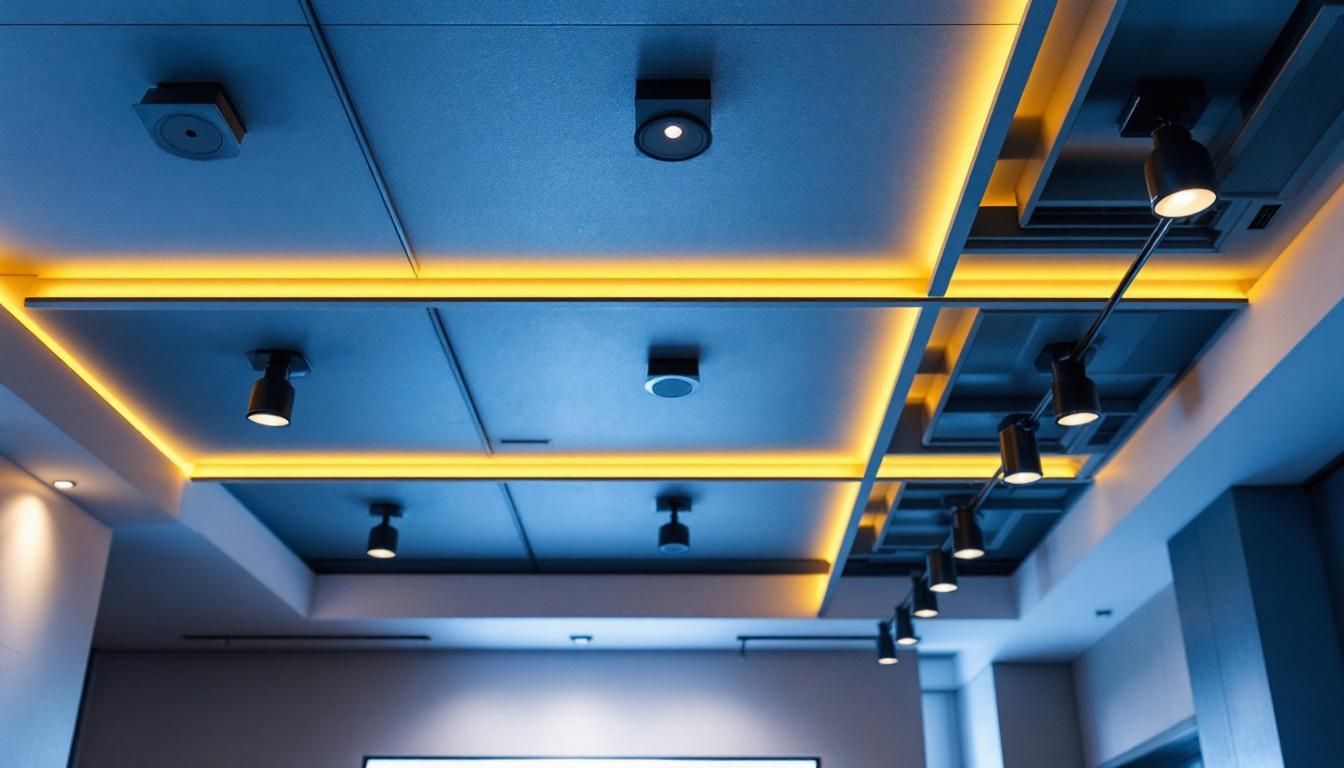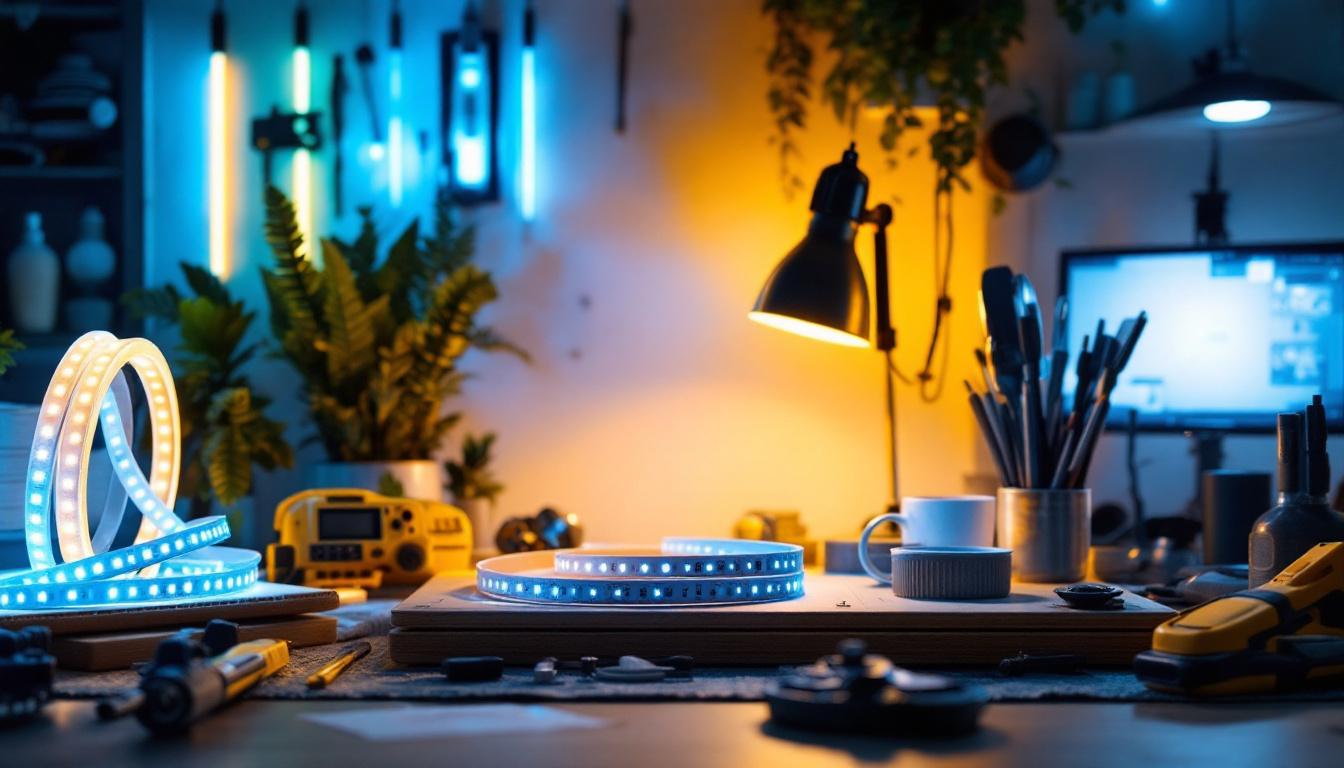
The lighting industry is evolving rapidly, with technological advancements and sustainability becoming paramount. For lighting contractors, staying informed about industry standards and best practices is crucial. The Design Light Consortium (DLC) plays a significant role in this landscape, providing guidelines and resources that help contractors navigate the complexities of lighting design and implementation. This article delves into the essential points that lighting contractors should know about the DLC, its initiatives, and how it impacts their work.
The Design Light Consortium is a non-profit organization that focuses on promoting high-quality, energy-efficient lighting solutions. Established to address the growing demand for better lighting standards, the DLC provides a platform for manufacturers, utilities, and contractors to collaborate on innovative lighting technologies.
One of the primary objectives of the DLC is to create a robust framework for evaluating and certifying lighting products. This ensures that contractors have access to reliable and efficient lighting options, ultimately benefiting both their projects and clients. The certification process not only assesses the performance of lighting products but also emphasizes their environmental impact, ensuring that the solutions offered are both effective and sustainable.
The mission of the DLC is to accelerate the widespread adoption of high-performance lighting. By setting clear guidelines and performance metrics, the DLC aims to enhance the quality of lighting products available in the market. This vision aligns with the broader goals of energy efficiency and sustainability, making it essential for contractors to stay updated on DLC initiatives. The organization envisions a future where advanced lighting technologies are seamlessly integrated into everyday life, significantly reducing energy consumption while improving the quality of illumination in various settings.
To achieve its mission, the DLC has launched several initiatives that directly impact lighting contractors. These initiatives include product certification programs, educational resources, and collaboration with utilities to promote energy-efficient lighting solutions. The certification programs are particularly noteworthy as they not only validate the performance of products but also foster innovation among manufacturers, encouraging them to develop cutting-edge technologies that meet the evolving needs of the market.
Through these initiatives, the DLC not only supports manufacturers in achieving certification but also provides contractors with the necessary tools to make informed decisions about the products they choose for their projects. Additionally, the DLC offers workshops and webinars that delve into the latest trends in lighting technology, helping contractors stay ahead of the curve. By fostering a community of knowledge sharing, the DLC empowers contractors to implement the most effective lighting solutions, ultimately enhancing the overall quality of their work and contributing to a more sustainable future.
For lighting contractors, understanding the significance of DLC certification is vital. Products that meet DLC standards are recognized for their energy efficiency and performance, making them more appealing to clients and utilities alike.
Using DLC-certified products can also lead to cost savings for contractors, as many utility companies offer rebates and incentives for projects that utilize energy-efficient lighting solutions. This not only enhances the overall value of the project but also contributes to a contractor’s reputation as a provider of high-quality, sustainable solutions. Furthermore, the adoption of DLC-certified products can help contractors stay ahead of regulatory changes and evolving industry standards, ensuring compliance and reducing the risk of costly penalties.
Utilizing DLC-certified products offers numerous advantages for lighting contractors. Firstly, these products are rigorously tested to ensure they meet stringent performance criteria, which translates to reliability and longevity in installations.
Secondly, contractors can leverage the marketing advantage that comes with using certified products. Clients are increasingly aware of energy efficiency and sustainability, and showcasing the use of DLC-certified products can enhance a contractor’s credibility and appeal. In addition, the use of these products can lead to improved customer satisfaction, as clients often appreciate the long-term savings associated with lower energy consumption and reduced maintenance costs. This satisfaction can translate into repeat business and referrals, further solidifying a contractor’s position in a competitive market.
Identifying DLC-certified products is straightforward. The DLC maintains a comprehensive online database that lists all certified products, making it easy for contractors to verify the status of a product before making a purchase. This database is regularly updated to reflect the latest certifications, ensuring contractors have access to the most current information.
Additionally, many manufacturers prominently display the DLC logo on their products and marketing materials, providing a visual cue that can help contractors make informed choices quickly. Beyond just the logo, contractors can also look for detailed product specifications and performance data provided by manufacturers, which often accompany DLC certification. This information can be invaluable when comparing different products and making decisions that align with project goals and client expectations.
The DLC offers a wealth of resources designed to keep lighting contractors informed and engaged with the latest industry trends. These resources include webinars, training sessions, and comprehensive guides that cover various aspects of lighting design and implementation.
By taking advantage of these resources, contractors can enhance their knowledge base, stay current with industry standards, and improve their overall project outcomes. Continuous education is key in a rapidly evolving field, and the DLC is committed to providing the tools necessary for contractors to succeed.
The DLC regularly hosts webinars and training sessions that cover a range of topics, from the latest advancements in lighting technology to best practices for energy-efficient design. These sessions are often led by industry experts and provide valuable insights that contractors can apply to their work.
Participating in these educational opportunities not only helps contractors stay informed but also allows them to network with peers and industry leaders, fostering collaboration and shared learning.
The DLC publishes various guides and documents that serve as practical resources for lighting contractors. These publications cover essential topics such as product selection, installation best practices, and energy efficiency standards.
Contractors can benefit from these guides by using them as reference materials during project planning and execution. Access to well-researched information helps ensure that contractors make informed decisions that align with industry standards.
Collaboration between lighting contractors and utility companies is crucial for promoting energy efficiency. The DLC works closely with utilities to develop programs that incentivize the use of energy-efficient lighting solutions. These programs often include rebates, grants, and other financial incentives that can significantly reduce project costs for contractors and their clients.
Understanding these collaborative efforts can provide contractors with additional opportunities to enhance their project proposals and offer clients more attractive pricing options.
Many utility companies offer incentive programs designed to encourage the adoption of energy-efficient lighting. These programs can vary by region but often include rebates for installing DLC-certified products. Contractors should familiarize themselves with the specific programs available in their area to maximize the benefits for their clients.
By incorporating these incentives into project proposals, contractors can not only improve their competitiveness but also promote the value of energy-efficient lighting solutions to their clients.
Establishing strong relationships with utility providers can be advantageous for lighting contractors. By maintaining open lines of communication, contractors can stay informed about upcoming programs and changes in incentive structures. This proactive approach allows contractors to better serve their clients and position themselves as knowledgeable partners in energy efficiency.
Additionally, utility providers often appreciate contractors who are well-versed in energy-efficient lighting practices, leading to potential referrals and collaborative opportunities on larger projects.
The lighting industry is continuously evolving, with new technologies and design philosophies emerging regularly. For lighting contractors, staying ahead of these trends is essential to remain competitive and provide clients with the best possible solutions.
Some of the most significant trends include the integration of smart lighting systems, an increased focus on human-centric design, and the ongoing push for sustainability in all aspects of lighting design.
Smart lighting systems are becoming increasingly popular, offering enhanced control and energy efficiency. These systems allow for remote management, automated adjustments based on occupancy or daylight levels, and integration with other smart building technologies.
Contractors who are knowledgeable about smart lighting solutions can offer clients cutting-edge options that improve energy efficiency and user experience. As the demand for smart technology continues to grow, contractors should consider investing in training and resources to stay informed about the latest developments in this area.
Human-centric design focuses on creating lighting solutions that enhance well-being and productivity. This approach takes into account factors such as color temperature, brightness levels, and the psychological effects of lighting on occupants.
Contractors who embrace human-centric design principles can differentiate themselves in the market by offering solutions that prioritize the needs and preferences of the end-users. Understanding the impact of lighting on health and productivity can lead to more successful project outcomes and satisfied clients.
The Design Light Consortium plays a pivotal role in shaping the future of the lighting industry. For lighting contractors, understanding the significance of the DLC, its certification programs, and the resources it offers is essential for success. By staying informed and engaged with the latest trends and best practices, contractors can enhance their project outcomes, improve client satisfaction, and contribute to a more sustainable future.
As the industry continues to evolve, lighting contractors who prioritize education, collaboration, and innovation will be well-positioned to thrive in a competitive landscape. Embracing the principles set forth by the DLC and leveraging its resources can lead to significant benefits for contractors, their clients, and the environment.
Ready to elevate your lighting projects with the highest quality at the best value? Look no further than LumenWholesale. Our spec-grade lighting products are designed to meet the rigorous standards of the Design Light Consortium, ensuring that you deliver sustainable and energy-efficient lighting solutions to your clients. With unbeatable wholesale prices and the convenience of free shipping on bulk orders, LumenWholesale is your go-to source for premium lighting without the premium price tag. Don’t compromise on quality or cost—choose LumenWholesale for your lighting needs. Wholesale Lighting at the Best Value is just a click away.

Explore the transformation of dropped ceiling lights in the lighting industry, highlighting innovative designs, energy efficiency, and their impact on modern interiors.

Discover the best places to purchase LED strip lights with our comprehensive guide tailored for lighting contractors.

Discover the transformative advantages of retrofit LED lighting for contractors.

Discover why lighting contractors should prioritize fluorescent shop lights in their projects.